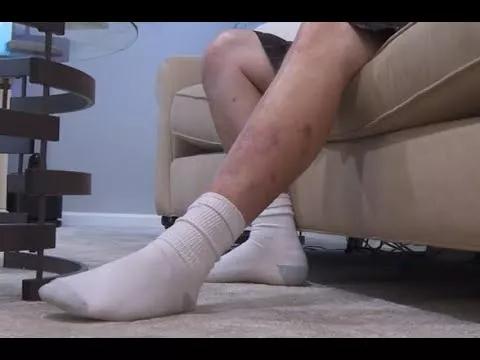August is Psoriasis Awareness Month. A dermatologist explains what causes the skin disease and the types of treatments available.

Cleveland Clinic News Service | 216.444.0141
We’re available to shoot custom interviews & b-roll for media outlets upon request.
CCNS health and medical content is consumer-friendly, professional broadcast quality (available in HD), and available to media outlets each day.
images: 0
video: 3
audio: 2
text: 2
Content is property of Cleveland Clinic and for news media use only.
CLEVELAND – August is Psoriasis Awareness Month. If you’re unfamiliar, the skin disease affects more than 3% of the adult population here in the United States.
“Psoriasis is an inflammatory skin disease that leads to a rash on the skin. It most commonly affects the elbows and the knees but can really occur anywhere, like the scalp or the hands, or even the genitals. And the rash is usually pink with thick scale, it may be that you feel like you trail scale when you walk around your house,” said Melissa Piliang, MD, dermatologist for Cleveland Clinic.
She said psoriasis is caused by an overproduction of skin cells in the body. Cases can range from mild to severe.
There is currently no cure available. However, there are different medications and treatments that can help. For example, some patients go in for ultraviolet light therapy. The light booth is set up kind of like a tanning bed but is much safer and more controlled.
Dr. Piliang said if you think you have psoriasis, you really should go see a dermatologist. Especially since it could affect your health in other ways.
“It’s also associated with other problems — increased risk for heart disease, diabetes, hypertension and high cholesterol. So we like to treat patients because we know that if we treat their psoriasis, we know that their risk of those diseases goes down,” said explained.
Dr. Piliang said while there is no cure for psoriasis, researchers are continuing to look into different treatments. They are also studying how diet and lifestyle can play a role.